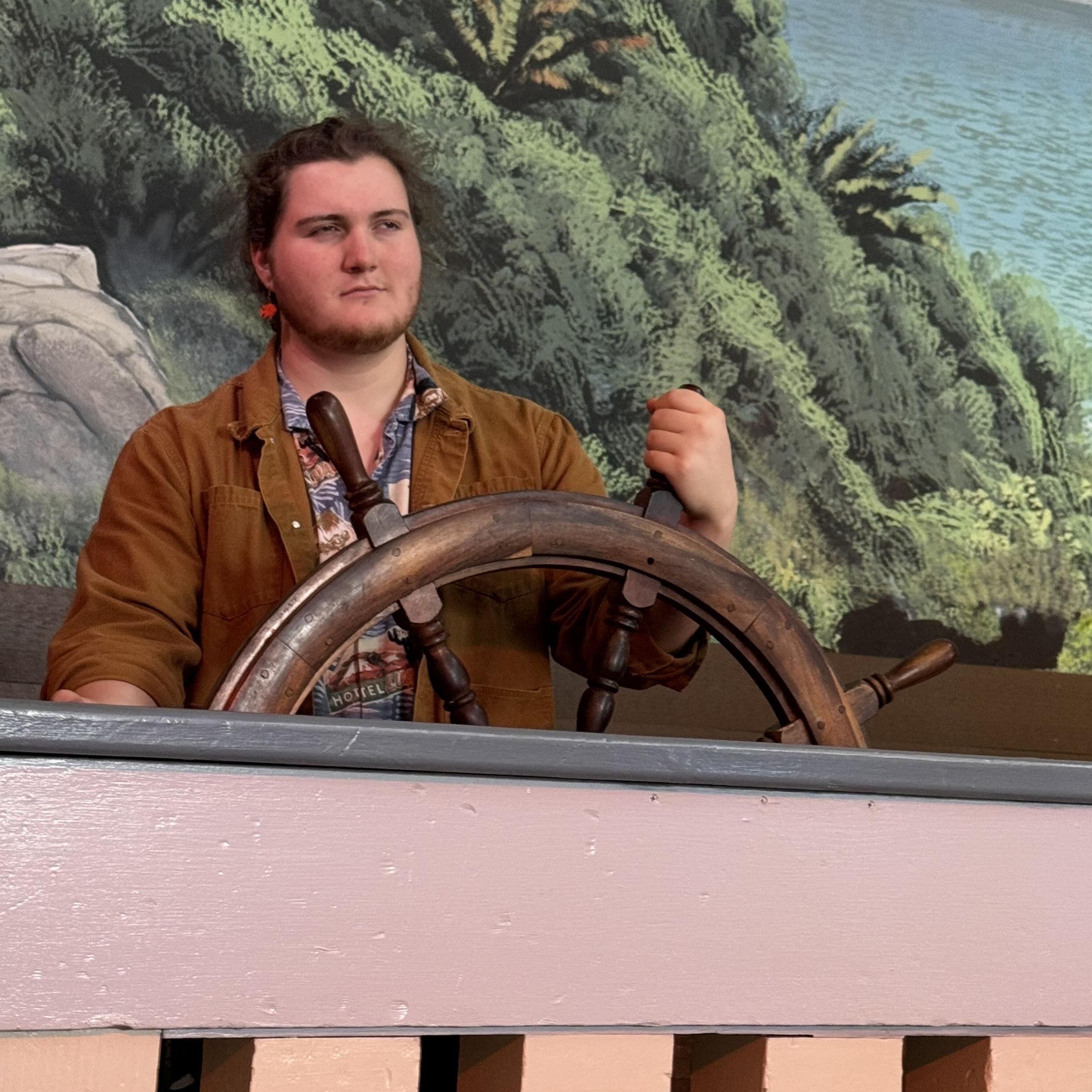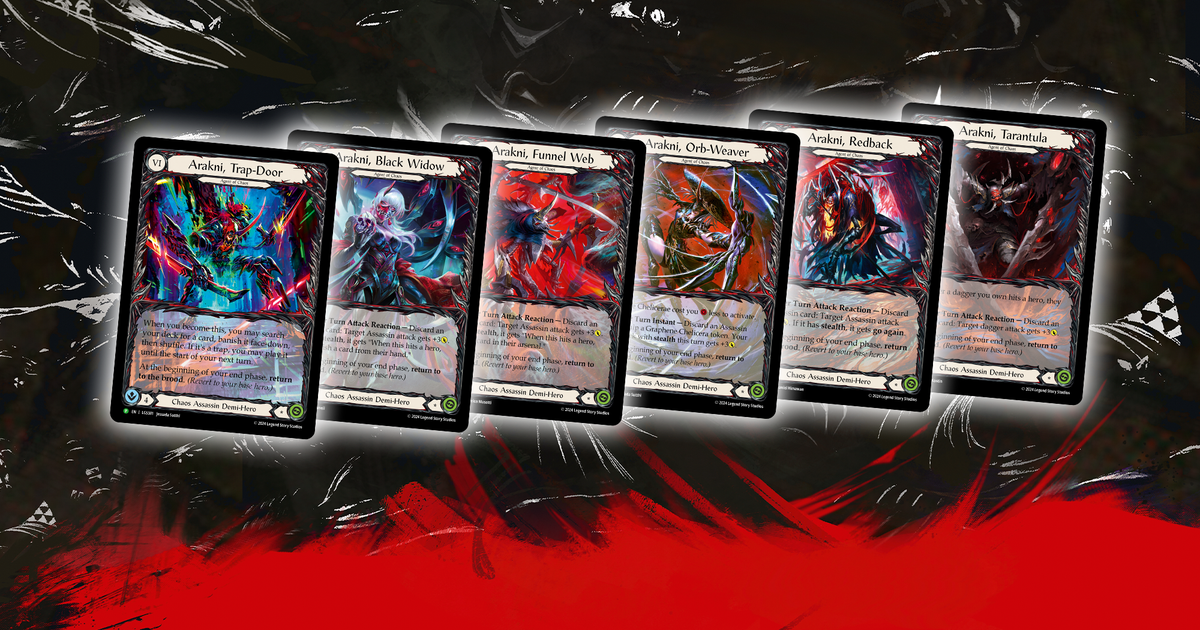Falling for Commoner, Or: How I Learned to Stop Worrying and Love the Kodachi Lock
-
 Ethan Emes
Ethan Emes - 02 Dec, 2024

Unlike some, I did not day 2 Calling: Portland.
In fact, I didn’t even day 1. Despite my best intentions, by the time the main event fired I had already decided I would not be participating. After arriving in Portland late Thursday night, I spent Friday in the convention hall getting ready for my first ever “big” FaB event. After selling cards and browsing vendors, I would be playing in CC side events for the rest of the day. By the end of the day, however, I found myself dreading to play the format I had registered for.
I, like many others, came to Flesh and Blood from Magic. In the last few months, I have learned to appreciate the questions that FaB asks and the puzzles that you must solve to win. As the Modern metagame stagnated and more of my buddies made the leap, I found myself increasingly disinterested in the offerings from Wizards of the Coast. As I joined in the hype for Portland, so too did I join in the preparation. Provided with the most foiled-out, baller Enigma list imaginable (Count Your Blessings intentionally absent), I began my grind. Coming from Magic, Enigma was a natural fit. Her “protect the baby” gameplay and incredible value fit right in with my Azorius control sensibilities. The more I played with Enigma, the more I enjoyed it. At first, I would play too short-sighted and get punished, but as I kept it up, I learned when I should wait and when I should commit. So why didn’t I end up playing in the Calling?
Whether it was the Sisyphean task of grinding against CYB Mistveil heroes or watching my round timer disintegrate while my opponent paused to read each and every one of my cards, I became disillusioned by my mystic illusionist. Dejected, I dragged myself out of the convention hall to face the group I came in with, only to see that they had all grown tired of waiting for my matches to finish. I left the Hyatt Regency that night with no self-respect, an empty stomach, and an overall record of 0-2-2. While drowning my sorrows and desperately trying to convince my group that Formula One was Cool Actually, my mind had been made up. I would rather die than do that all again.
Enter Commoner, Stage Left
Due to an unfortunate flub in packing, I left my Commoner Dash, Inventor Extraordinaire deck at home and could not participate in Friday’s events. This didn’t seem like a big deal at the time, but if you’ve read this far, you should know that I had reassessed that judgment by Saturday. Fortunately, I secured myself an Ira, Scarlet Revenger deck from a friend participating in the Calling. Armed only with the knowledge that I should block well and use all my equipment at once, I took the plunge.
Over the next 8 hours I would play at least 10 rounds of Commoner, going from one event to the next with almost no downtime. In that time, I played no less than 6 Ira Mirrors, but what came as a shock to me was just how fun the Ira/Commoner gameplay loop was. I found myself enamored with her addictive elegance. With almost no experience in the format, I had to anticipate my gameplan into each hero in the blind. What would have been a frustrating and exaggerated ordeal in the Calling, was a refreshing change of pace at the Commoner tables.
It seemed that Commoner attracted exactly the kind of player I try to surround myself with. From format specialists to FaB radicals and the whole spectrum of queer joy that TCGs seem so well equipped at cultivating. At the commoner tables, each round was an opportunity to share a conversation with a fascinating stranger (one of life’s true pleasures). In this same vein, Commoner’s smaller life totals and faster gameplay meant that games frequently finished before the 35-minute round timer had ended. Many of us wound up playing two or three games in the time allotted for just one. This shortened timeframe meant more gaming, more conversation, and, hugely, almost none of the social fatigue that plagued my CC rounds. At the Commoner tables, if your opponent gave you the ick, it was rarely for more than 20 minutes.
From the fantastic people that populated those tables to the simple beauty of math, my day grinding Commoner left me deeper in love with FaB than I had ever been before. The tight decisions and their low-visibility/high-impact dichotomy left me leaving each round with a new lesson. In my (many) mirror-matches of the day, I could appreciate the openness within these micro-decisions. It is not uncommon for TCGs to trend towards consistency as a means to perform, with each game echoing the last. I thought I knew what that meant before my baptism by kodachi, but by the time I left the hall that night I had a new appreciation not just for Flesh and Blood, but for card games as a whole. Every moment in every matchup had myriad potential decisions, each with invisible consequences that could (and often did) determine the outcome of the game.
When Ira Holds Your Heart, Will She Judge You Lightly?
Now, I don’t know what these revelations will mean for me long term. Commoner armories are rare at best, and enfranchised players want opportunities to exercise their investment, not play with draft chaff. Even if it is true that Commoner will likely never move past its place as a curiosity, I consider the increasing support for Commoner in larger events a blessing for all of us who love this game. Not long after my experience with Commoner in Portland, I went home to visit family for Thanksgiving. There I had the chance to share my love for FaB with people that I love, and of course I brought my Commoner decks.

